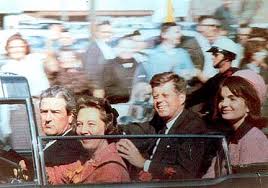Standoff
 |
| Soviet R-12 intermediate-range nuclear ballistic missile in Red Square |
The message was direct and clear: Time is running out. The United States is prepared to take strong and overwhelming retaliatory action by the end of the week if Moscow does not immediately agree to withdraw its missiles from Cuba.
By midnight that night Moscow time, about a dozen Soviet ships that had been steaming their way toward Cuba were turning around. Khrushchev had backed down. The Kremlin also announced that all Soviet missile bases in Cuba would be dismantled and returned to Russia and that UN inspections would be permitted to verify the removal. It had been a tenuous game of global chicken, and the Soviet Union had been the first to turn back.
That same evening, General Ion Mihai Pacepa, head of Romania’s Securitate (secret police), went to the residence of Gheorghe Gheordhiu-Dej, General Secretary of the Soviet satellite, to report the end of the Cuban crisis. “That’s the greatest defeat in Soviet peacetime history,” Dej said when he heard the news.
Neither Dej nor Pacepa was a fan of the bellicose Khruschev. Although Khruschev had gained favor with the world by “unmasking” Stalin’s crimes and publicly espousing a policy of "peaceful coexistence" with the capitalist West, the two Romanian leaders knew Comrade Khrushchev personally. Together they celebrated Khrushchev’s “apocalyptical” humiliation over caviar and champagne.
Payback
But although Kennedy had won this skirmish, Dej also remarked that at this point, he wouldn’t give a penny for Kennedy’s skin. Then he made a prediction that is stunning to Western (but not Eastern) ears: “He won’t die in his bed.”
And indeed he would not, as the world would see a scant thirteen months later.
Damage Control: Dezinformatsiya
Four days later, General Alexander Sakharovsky, head of Soviet foreign intelligence and Pacepa's de facto boss, arrived in Bucharest, Romania’s capital city, to brief the Securitate on Operation “DRAGON,” the goal of which was to divert attention from the KGB's relationship with Lee Harvey Owsald and to frame the CIA instead as the culprit for assassinating Kennedy.
It was business as usual in the Eastern bloc. “Unlike Western intelligence services, Soviet bloc espionage was not designed to obtain factual information and predict enemy intentions,” Pacepa explained years later, after defecting to the US. “The communist tsars used their foreign intelligence services to hide their crimes and to embellish their own stature — in other words, to lie to their country and to the rest of the world.”
And for the most part, the West bought Operation DRAGON hook, line, and sinker, quite likely with the complicity of President Kennedy’s successor, Lyndon B. Johnson.
Reflection
Gen. Pacepa is kind to the members of the Warren Commission, which reported a year later that Oswald acted alone. The West simply does not think like the KGB. “We should not blame the Warren Commission for missing the significance of the espionage proof sitting right in their hands. None of its members had any background in counterintelligence analysis. … You cannot expect a plumber to perform heart surgery.”
But a plumber can learn from a heart surgeon who's willing to teach him. Gen. Pacepa has extensive experience with KGB modus operandi. In Programmed to Kill: Lee Harvey Oswald, the Soviet KGB, and the Kennedy Assassination, he combines his own knowledge about the KGB’s involvement with Oswald with the evidence assembled by the FBI and other US investigators. In Disinformation: Former Spy Chief Reveals Secret Strategies for Undermining Freedom, Attacking Religion, and Promoting Terrorism, he adds new information that has become available since the publication of Programmed to Kill. Pacepa connects the dots for us to help us learn to "see" this global conflict as it really was.
Why is this relevant today? Because the same tactics are being used to dupe Western leaders today. And ignorance is lethal.
 A half-century ago, President Kennedy came to understand the importance of confronting evil in the world. Did he pay for it with his life? Probably, Yes. What would have happened had he looked the other way or pursued a policy of appeasement toward the USSR? Thankfully, we will never know.
A half-century ago, President Kennedy came to understand the importance of confronting evil in the world. Did he pay for it with his life? Probably, Yes. What would have happened had he looked the other way or pursued a policy of appeasement toward the USSR? Thankfully, we will never know.For that, we do well to pay honor and respect to President John F. Kennedy.
And to learn a little something of modern heart surgery.
Related
No comments:
Post a Comment